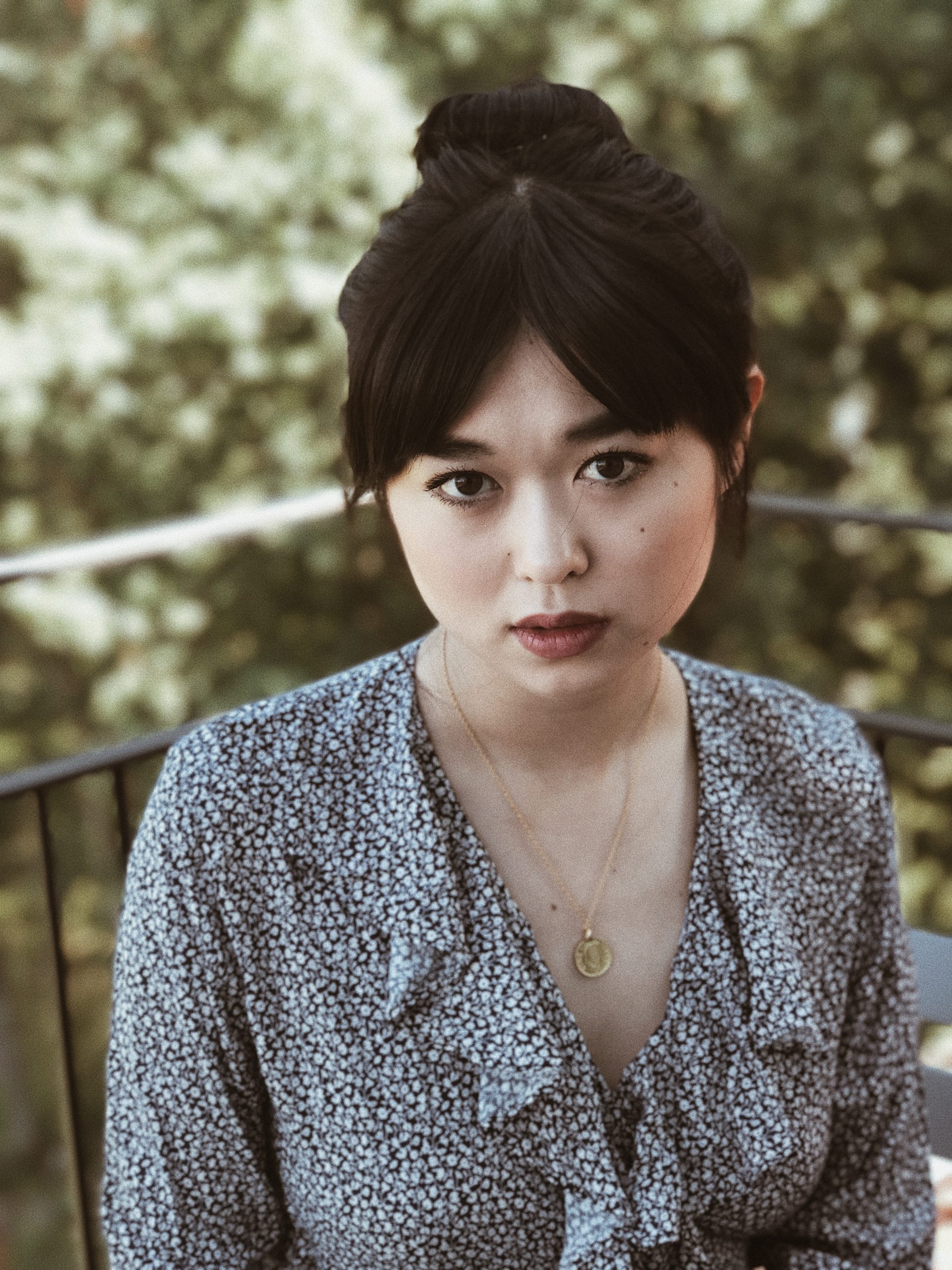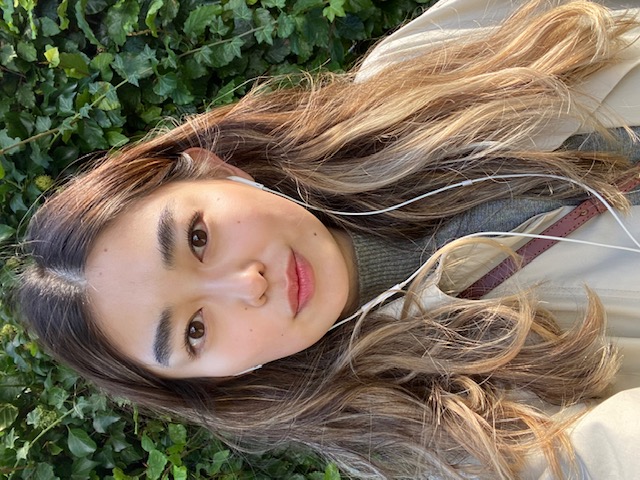
Angela Gui on campaigning for her imprisoned father and her research on political ideology.
What has happened to my father is emblematic of a larger trend in China taking liberties and enforcing its system abroad. It has implications for everyone. So many countries do not dare criticise China now.
Angela Gui
Angela Gui [2017] has long been interested in ethical issues. As a child of Chinese parents living in Sweden she grew up fascinated by the difference between the ideologies behind the two countries. It is a fascination which has fuelled her academic research.
But in 2015 that academic interest burst into her real life. During the third year of her undergraduate studies at the University of Warwick, her father, Gui Minhai, disappeared from his home in Thailand and she has not seen him since.
He was one of five men linked to the Causeway Bay Books publishing company in Hong Kong who are thought to have been abducted by the Chinese authorities. The company sells a number of political books that are considered sensitive and banned in mainland China.
The Chinese authorities admitted the men were in custody in early 2016. They have alleged that Gui Minhai is held in connection with a traffic incident more than a decade earlier, but charges have yet to be brought against him.
Angela says there is no evidence that such a traffic incident occurred. She has been campaigning for his release ever since, speaking at events and writing articles in the press. She has received three brief phone calls from her father since his detention, the last in mid-2016. In each one he tells her to stop campaigning for him. “It was like talking to someone else through him,” she says.
Following international attention on the case, Gui Minhai appeared on Chinese television “confessing” to the traffic accident and stating that he had travelled to China of his own volition and handed himself in.
Angela believes firmly that campaigning is vital. “What has happened to my father is emblematic of a larger trend in China taking liberties and enforcing its system abroad. It has implications for everyone. So many countries do not dare criticise China now,” she says.
Angela, who has faced intimidation and whose emails are hacked, has been working with NGOs and others to keep her father’s case in the public eye. “It’s the only thing I can do. The worst thing would be to allow people to forget about him. If we are not watching China will see they can do what they want.”
Two contrasting systems
Angela has been interested from an early age in political ideology and its impact on society.
She was born in Gothenburg in Sweden, but at the age of five, after her parents divorced, she and her mother lived in China for a year and she began her formal education there.
It was an experience which had a profound impact on her. The contrast between the highly competitive, formal system in China and a liberal Swedish early years system, based on learning through play, was huge and Angela says it shaped her future academic interests. In China she had to study and be graded on 13 subjects and take exams. Students, even at the age of five, were ranked on a list pinned to the blackboard and were not allowed to go to the toilet during class. They were expected to do homework or read or learn an instrument after school whereas in Sweden children would have time to go on playdates and learning was very informal.
At the age of 10 Angela became interested in the debate about the legalisation of euthanasia in Sweden and one of her teachers gave her a book on applied ethics which drove her interest in abstract, theoretical questions. “I was interested in why some societies thought something was ethical and others didn’t,” she says.
Angela was accepted at one of Sweden’s best high schools to do social sciences and philosophy. She chose social sciences because she wanted a career where she could make a difference. She feels this desire was in some way shaped by her family – her mother is a teacher who was very involved in union activities and in trying to improve the quality of teaching. Meanwhile, her father had long been very politically active in freedom of speech issues in China and often spoke to her about this. “I grew up learning about values and about what I should use my education for,” says Angela. Although she only saw him once a year after her parents’ divorce, she spoke to her father regularly on the phone and when she was old enough to travel on her own she spent more time with him. Little did she realise, though, that she would end up an activist like him.
Sociology
When it came to thinking about university, she was considering doing a course in analytical philosophy. She consulted her father who suggested it might not achieve the kind of social change she was seeking. So she opted for Sociology instead. However, the courses in Sweden were all applied and Angela didn’t want to commit to a career as a social worker. She was also keen to improve her English so she applied to the University of Warwick in England. She enjoyed living on her own in a new country, doing something she could make her own.
She did her undergraduate dissertation on how our sense of personal identity may be becoming more elastic with the emergence of new technology and especially social media. She looked in particular at how the law has responded to new ways of expressing personal identity, such as through online avatars.
During her course she became increasingly interested in the sociology of medicine, having developed a chronic illness at the age of 19. She was given a lot of support by her department to help her continue her studies, for instance, lectures were recorded for her if she could not attend.
Angela chose to stay at Warwick to do her master’s, but switched to studying the history of medicine because she felt Sociology didn't offer the attention to detail that she was interested in. She won a Wellcome Trust Scholarship and chose to bring together her interest in health and ideology. Her master’s dissertation focuses on mental health and the rise of the welfare state in Sweden. Sweden had the highest per capita statistics at the time for lobotomies and that fascinated Angela. “The shift to social democracy was a huge cultural and ideological shift. You could see it in literature and in science. I wanted to study how it was reflected in medicine and specifically whether the emerging social democratic view of life affected Sweden’s attitude to lobotomies,” she says.
Her dissertation looks at how the eugenics idea of maximising human potential through genetic and biological engineering transmuted into the social democratic view of social engineering. “Social engineering is the idea that everyone can be the ideal citizen; you just have to engineer the conditions to make that happen, for instance, by regulating behaviour. Lobotomy was to some extent a solution to enable people with mental health problems to work better, to rehabilitate them rather than biologically engineer them,” says Angela.
Health propaganda
For her PhD, which she begins in the autumn, she will switch from studying the links between Swedish health issues and ideology to investigating Chinese health policies.
She will study health propaganda during the Maoist period, particularly how health was visualised given that the majority of the population were illiterate. “I grew up hearing about the Cultural Revolution and working on my dad’s case opened my eyes to human rights issues,” she says.
“Public health is a huge rights issue. Many Chinese look back at the Maoist period as positive with regard to health issues and feel that it has become more fragmented since the 1980s with illnesses of the past returning. That perception is influenced by the propaganda they were exposed to during the Maoist period. I hope that a historical study will aid contemporary public health debates.”

Vera Angela Gui
- Alumni
- Sweden
- 2017 PhD History and Philosophy of Science
- Corpus Christi College
My research focuses on lung disease epidemics in twentieth century China, with a particular interest in visual communications of public health messages. My project, which is funded by the Gates Cambridge Trust, explores the ways in which lung disease shaped the everyday, touching upon notions of body, modernity, and nationhood across the 1949 divide through visual and print cultures of lung disease public health campaigns.
I was previously at the Centre for the History of Medicine at the University of Warwick, working on public health and neuroscience under social democracy in the mid-twentieth century with the support of a Wellcome Trust Medical Humanities MA Award. I also taught on the undergraduate module 'Social Theory of Law' at the Warwick Sociology department in 2017.
At Cambridge, I have supervised undergraduates on 'Science in the Making of Modern Medicine' and 'Science and Medicine since World War I'. Beside my academic work I run a human rights campaign focusing on political prisoners in China. As part of this work I have testified before US Congress, UK and Canadian Parliaments, and the United Nations Human Rights Council. I have contributed articles and commentary for outlets such as The Washington Post, The Guardian, Hong Kong Free Press and a number of Swedish publications. As of 2022, I also serve on the board of The Campaign for Hong Kong.
Previous Education
The University of Warwick












